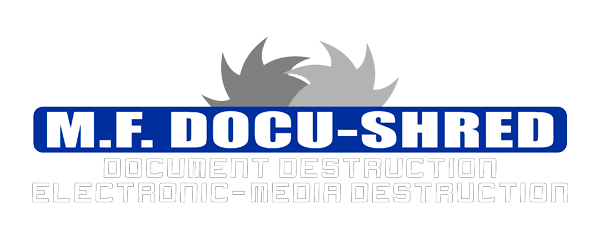
As remote work becomes increasingly common, the need for robust data security policies in home offices has never been greater. For professionals handling sensitive information, whether personal, corporate, or client-related, ensuring that data remains protected is a critical responsibility. This guide offers practical tips on crafting a solid data security policy tailored to a home office environment, incorporating best practices and essential considerations like document disposal laws and information compliance.
Why Data Security Matters in a Home Office
Working from home comes with unique challenges. Without the structured environment of a corporate office, data security can often take a back seat. Yet, breaches can result in severe consequences, including legal ramifications, loss of client trust, and financial penalties. By implementing a clear data security policy, home-based professionals can mitigate risks and maintain compliance with applicable laws.
Understanding Key Components of Data Security
To craft an effective data security policy, it’s important to understand its key components:
Data Classification
Determine the types of data you handle. Is it sensitive personal information, financial data, or proprietary business information? Knowing this will help you prioritize protection measures.
Legal Requirements
Laws such as GDPR, HIPAA, and local document disposal laws outline how certain types of data must be managed. Ensure you’re familiar with relevant regulations to avoid non-compliance.
Information Compliance
Information compliance refers to adhering to legal and organizational standards for data protection. Failure to comply can lead to penalties, lawsuits, and reputational damage.
Tips to Establish Your Home Office Data Security Policy
Creating a data security policy for your home office doesn’t have to be overwhelming. Here are actionable steps to help you get started:
1. Assess Your Data Handling Practices
Begin by evaluating how you handle data in your home office. Consider:
- Where and how data is stored.
- Who has access to the data.
- Whether data is transmitted securely.
Use this assessment to identify potential vulnerabilities and prioritize areas for improvement.
2. Secure Your Devices
Your home office’s primary defense against data breaches is the security of your devices. Implement the following measures:
- Install Antivirus Software: Protect against malware and viruses.
- Keep Software Updated: Regular updates patch security vulnerabilities.
- Enable Encryption: Encrypt your hard drive to safeguard stored data.
- Use Strong Passwords: Employ unique, complex passwords and consider a password manager for convenience.
3. Implement Network Security
Home networks are often less secure than corporate ones. To strengthen your network:
- Use a Secure Wi-Fi Connection: Ensure your Wi-Fi is password-protected and encrypted.
- Enable a Firewall: This acts as a barrier against unauthorized access.
- Invest in a VPN: A virtual private network encrypts your internet connection, especially important when accessing public Wi-Fi.
4. Establish Access Controls
Not everyone in your household should have access to your work data. Implement these controls:
- Create User Accounts: Assign separate user accounts for work and personal use on your devices.
- Lock Devices When Not in Use: Use screen locks to prevent unauthorized access.
- Limit Physical Access: Store sensitive documents in locked drawers or cabinets.
5. Regularly Back Up Data
Regular backups ensure you can recover data in case of loss or corruption. Follow these best practices:
- Automate Backups: Schedule automatic backups to external drives or secure cloud storage.
- Test Restorations: Periodically test your backups to ensure they are functional.
- Encrypt Backups: Protect backed-up data with encryption.
6. Create a Document Disposal Policy
Improper document disposal can lead to data breaches and legal issues. To stay compliant with document disposal laws:
- Shred Physical Documents: Use a cross-cut shredder to destroy paper records.
- Dispose of Electronics Properly: Wipe all data from old devices before recycling or discarding them.
- Follow Retention Guidelines: Adhere to laws dictating how long certain documents must be retained before disposal.
7. Educate Yourself and Others
Continuous learning is key to staying ahead of security threats. Consider:
- Training on Security Best Practices: Learn how to identify phishing attempts and other scams.
- Staying Updated on Laws: Regularly review changes to document disposal laws and information compliance standards.
- Sharing Knowledge: If others use your home office, educate them on the importance of data security.
8. Monitor and Update Your Policy
A data security policy isn’t static. Regularly review and update it to address new threats and changes in your work environment. Document revisions and ensure you’re meeting the latest compliance requirements.
Tools and Resources to Enhance Security
Modern technology offers many tools to bolster data security. Here are a few you might consider:
Password Managers
Password managers generate and store strong passwords, reducing the risk of breaches due to weak credentials.
Secure File-Sharing Services
For transmitting sensitive documents, use services with robust encryption like Dropbox Business or Google Workspace.
Multi-Factor Authentication (MFA)
Enable MFA on all accounts to add an extra layer of security beyond just passwords.
Data Loss Prevention (DLP) Tools
DLP tools help monitor and control data movement, ensuring sensitive information doesn’t leave your secure environment.
The Role of Information Compliance in Home Office Security
Adhering to information compliance is a cornerstone of any data security policy. Here’s how to integrate compliance into your home office practices:
Identify Applicable Regulations
Research which laws apply to your work. For example:
- GDPR: If handling data of EU citizens.
- HIPAA: For healthcare-related information.
- Local Document Disposal Laws: To manage how documents are discarded.
Conduct Compliance Audits
Regular audits help ensure your data security practices align with legal requirements. This includes:
- Reviewing storage and disposal methods.
- Ensuring proper encryption and access controls.
- Documenting compliance efforts for accountability.
Maintain Proper Documentation
Keep records of your data security measures, training sessions, and audits. Proper documentation demonstrates your commitment to compliance in case of an investigation or breach.
Benefits of a Home Office Data Security Policy
A well-crafted data security policy offers several advantages:
Protects Sensitive Information
Whether it’s client data, proprietary business information, or personal details, a security policy helps prevent unauthorized access and misuse.
Ensures Legal Compliance
By adhering to laws such as document disposal laws and information compliance standards, you avoid fines and legal issues.
Builds Client Trust
Clients are more likely to trust professionals who demonstrate a commitment to data protection, enhancing your reputation and business prospects.
Reduces Financial Risks
Data breaches can be costly. From legal fees to reputational damage, investing in security upfront saves money in the long run.
Common Mistakes to Avoid
When implementing a data security policy, avoid these pitfalls:
Neglecting Regular Updates
Cyber threats evolve rapidly. Ensure your policy and tools are updated to tackle emerging risks.
Overlooking Physical Security
While digital security is crucial, don’t forget to secure physical documents and devices.
Ignoring Compliance Requirements
Failing to comply with laws such as document disposal laws can have severe consequences. Stay informed and proactive.
Relying Solely on Technology
While technology plays a key role, human awareness and good practices are equally important for robust security.
Final Thoughts
Creating a data security policy for your home office is an essential step in protecting sensitive information and maintaining compliance with legal standards. By assessing your practices, leveraging the right tools, and staying informed about document disposal laws and information compliance, you can build a secure, compliant, and professional home office environment.
When you decide it’s time to invest in a reliable paper shredding service, turn to M.F. Docu-Shred for secure solutions.

